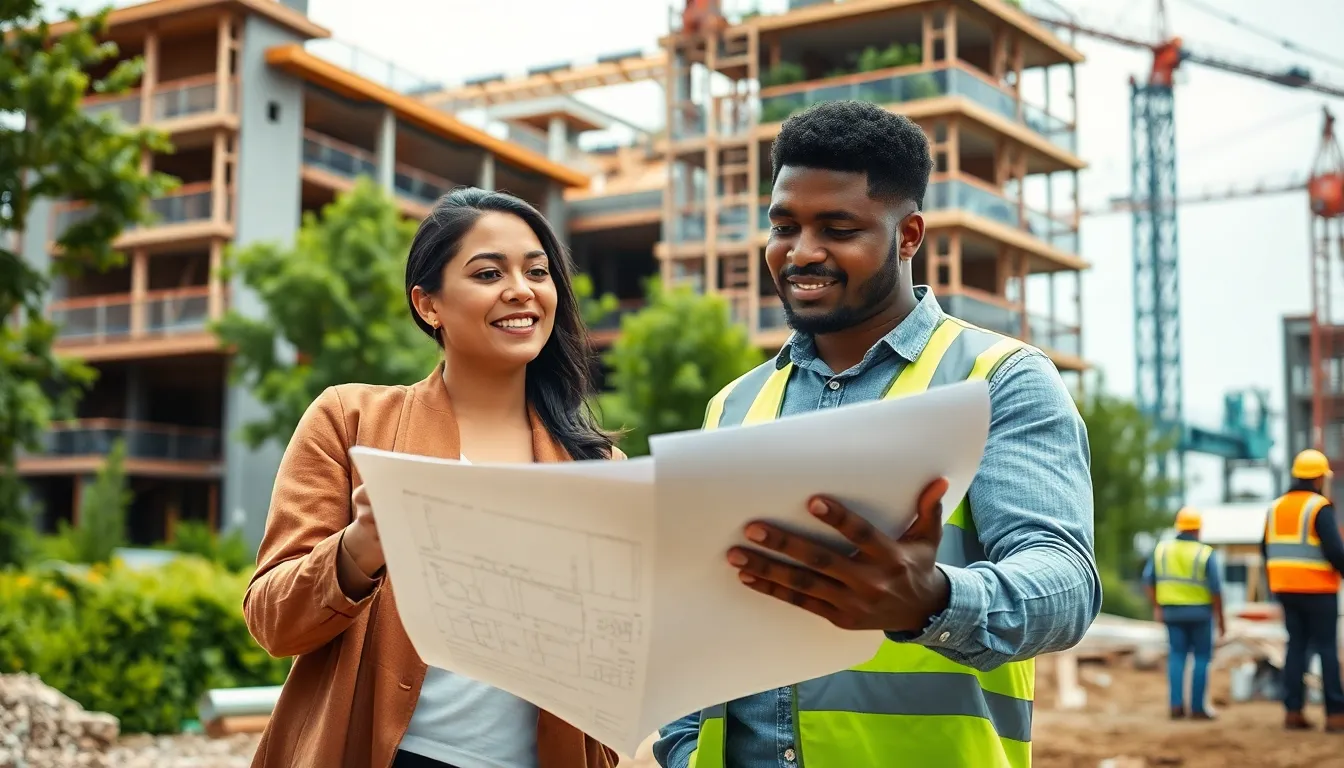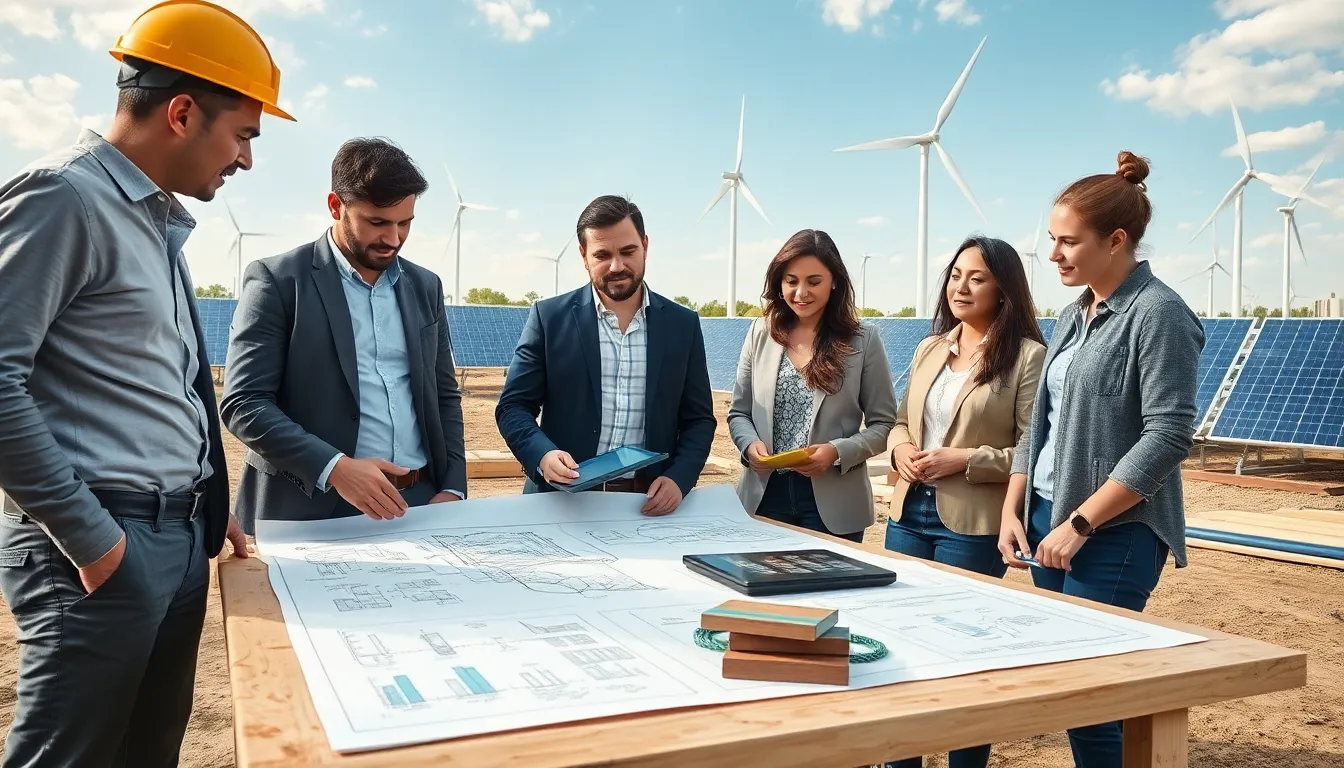Imagine a world where buildings breathe, waste is but a distant memory, and construction doesn’t mean pillaging Mother Earth. Welcome to the exciting realm of sustainable construction technology. It’s not just about slapping some solar panels on roofs: it’s about innovating our way towards a world where every hammer swing is a vote for the environment. Let’s investigate deeper into why sustainability in construction is hot right now and what groundbreaking technologies are shaping this verdant future.
Table of Contents
ToggleUnderstanding Sustainable Construction

Sustainable construction focuses on minimizing the environmental impact of buildings throughout their lifecycle. This means considering everything from resource extraction to the eventual demolition of structures. It’s a holistic approach designed to promote efficiency, reduce waste, and eventually support a healthy environment.
Understanding this concept requires an exploration into its core principles, which typically encompass the efficient use of resources, the conservation of biodiversity, and the reduction of pollution. Much like a well-planned game of chess, sustainable construction navigates around challenges while carefully placing each move for maximum impact.
The Importance of Sustainability in Construction
The construction sector is one of the leading contributors to environmental degradation. Approximately 40% of global energy usage stems from buildings, highlighting the urgency for a drastic shift. Embracing sustainable practices isn’t merely a choice: it’s becoming a necessity.
Not only does sustainability reduce environmental footprints, but it also enhances the social and economic aspects of construction. Think about it: greener buildings often lead to lower operational costs and increased market value. More than ever, investors and consumers are prioritizing eco-friendly practices, creating a double incentive for construction firms to adapt. After all, who wouldn’t want to live in a home that’s both stylish and easy on the planet?
Innovative Sustainable Construction Technologies
Advancements in technology are at the heart of the sustainable construction movement, allowing for significant strides in efficiency and eco-friendliness.
Materials in Sustainable Construction
One of the most exciting developments includes the use of sustainable materials. Recycled steel, bamboo, and reclaimed wood are just a few examples. These materials not only provide durability but also reduce the demand for virgin resources. In fact, some innovative companies are exploring 3D printing technology, which can create building components from waste plastic, transforming trash into treasure in the process.
Renewable Energy Integration
Integrating renewable energy sources into construction plans is another game-changer. Solar panels, wind turbines, and geothermal systems are becoming standard, creating buildings that can produce energy as efficiently as they consume it. This shift doesn’t just help the planet: it also empowers homeowners to reduce long-term costs and reliance on traditional energy supplies.
Smart Building Technologies
Advances in smart building technology play a vital role, too. These systems optimize energy consumption, providing real-time data that can help managers adjust settings for maximum efficiency. For instance, intelligent heating and cooling systems learn from occupants’ behavior, automatically adjusting to ensure comfort while minimizing waste.
Challenges and Barriers to Adoption
Even though the clear benefits, the journey toward sustainable construction isn’t without its hurdles. Many construction firms face challenges such as higher upfront costs and a lack of standardized practices.
Also, finding skilled workers who are trained in sustainable techniques can be like searching for a needle in a haystack. Compounding these issues are regulatory hurdles and misconceptions about the effectiveness of green technologies. It’s crucial for stakeholders to address these concerns head-on, fostering collaboration and education within the industry.
Future Trends in Sustainable Construction Technology
As society spins towards a more eco-conscious mindset, future trends in sustainable construction technology show promise. One key area is the focus on circular economy principles, where buildings are designed from the get-go to be adaptable and recyclable. This means architects and builders will increasingly collaborate to ensure each material has a purpose beyond its initial application.
Also, the future will likely see an uptick in using artificial intelligence (AI) to improve project efficiency. AI can streamline planning, design, and even construction processes, allowing for more effectively managed resources. It’s this innovative approach that will help bridge the gap between demand for housing and the need for sustainable practices.



